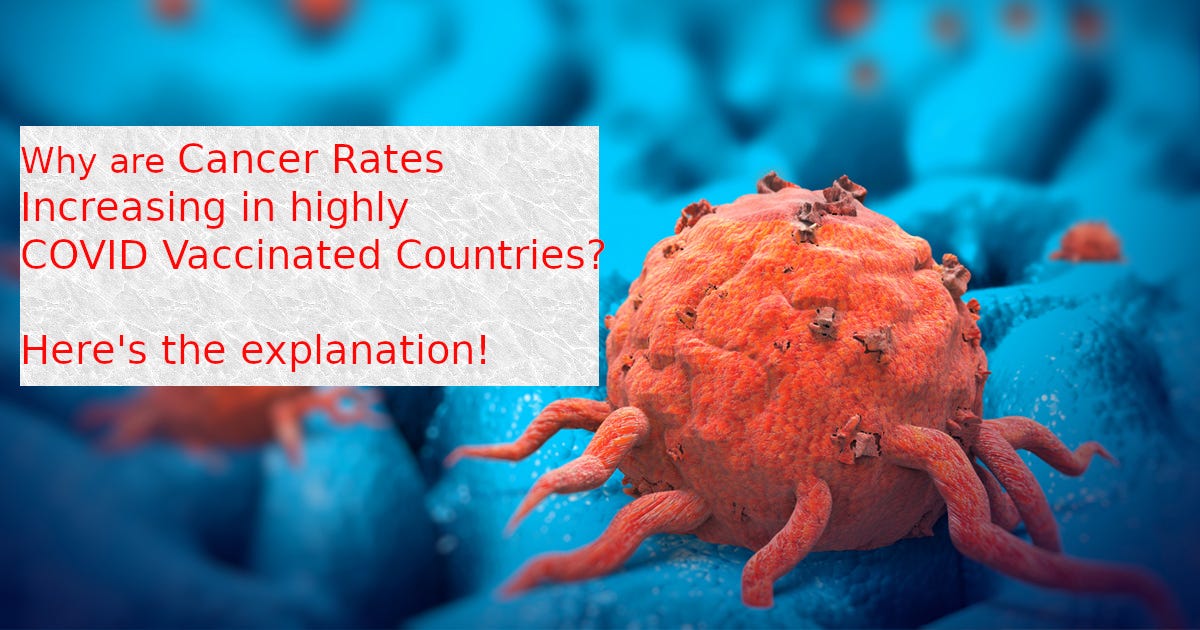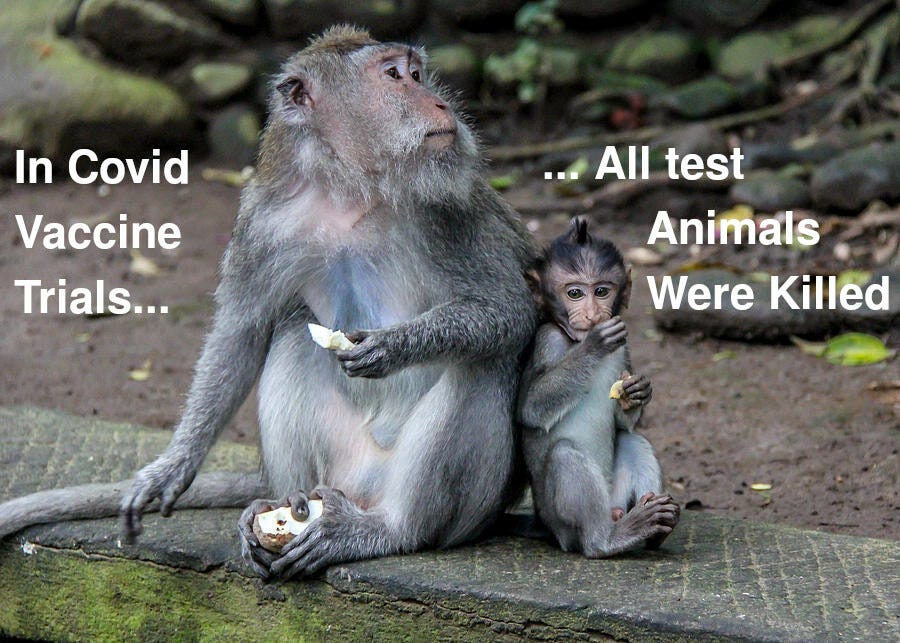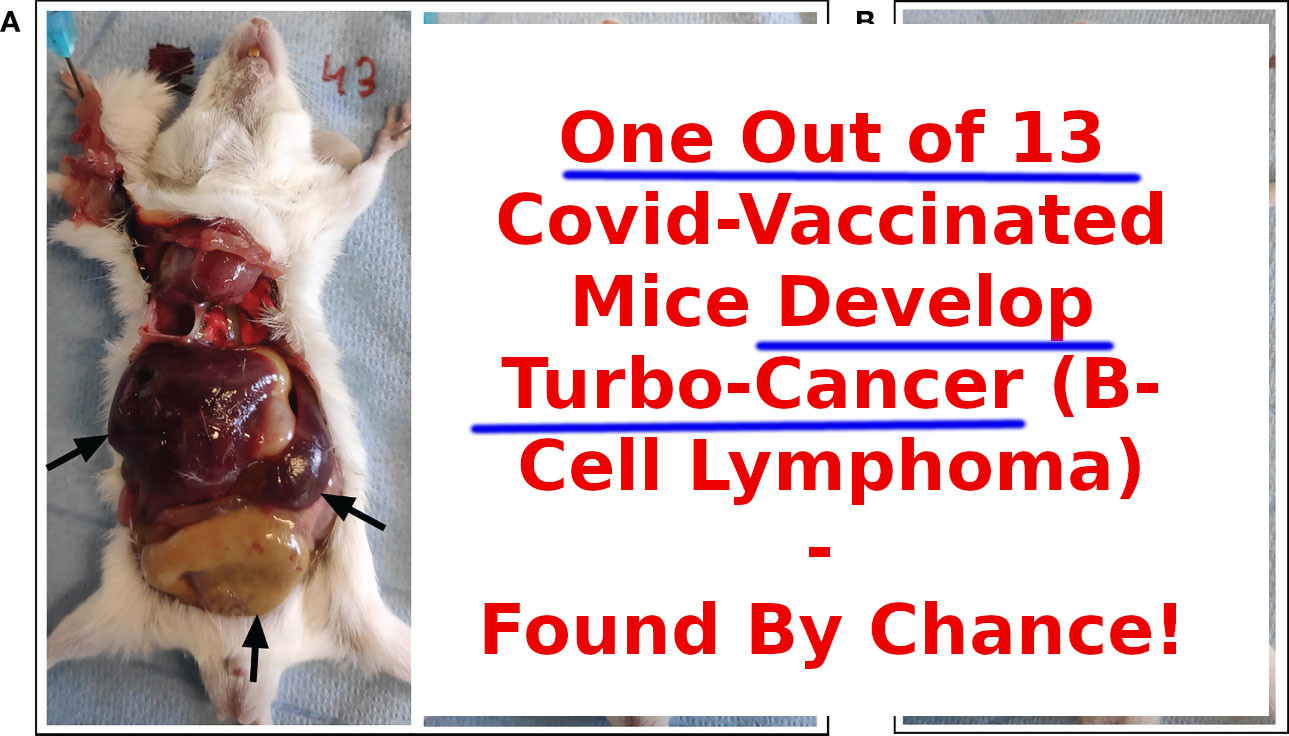Source:
https://igorchudov.substack.com/p/were-lab-animals-killed-after-mrna
Scientists could follow test animals for a while post-vaccination, to keep humans safe - but they chose not to
In a joint article written with A Midwestern Doctor last October, we described a tragic case of vaccine-caused B-cell lymphoblastic lymphoma in a prominent COVID vaccine advocate, Belgian Prof. Michel Goldman.
A recent and seemingly unrelated study involving lab mice shows that Michel Goldman has counterparts in the murine (mouse) world. (hat tip to @ashmedaidaemon on Twitter, who has an amazing Substack and who wrote a nice summary of the study)
As in all other animal studies, the mice were planned to be sacrificed shortly after the booster. However, one mouse died from “turbo cancer,” as the researchers describe here:
This study highlights a lab mouse that developed B-cell lymphoblastic lymphoma and died shortly after the booster from the same type of cancer as Prof. Goldman has.
COVID could not be blamed for the demise of this specific mouse:
No SARS-CoV-2 spike protein was observed in any of the organs studied (data not shown, using a rabbit polyclonal anti-SARS-CoV-2 spike protein antibody (diluted 1:200, catalog no. NB100-56578, Bio-Techne Ltd., Minneapolis, US)). Lung- and heart tissue of a male SCID mouse that underwent a confirmed SARS-CoV-2 infection served as positive control for this staining.
While several other mice in this experiment continued to gain weight as they aged (anyone can relate to that?), this specific mouse’s weight started declining following the COVID vaccination:
We can see that not only this mouse became sick right when it was vaccinated, but her illness also went into overdrive after the booster shot.
We will probably be assured that this is an “extremely rare case.”
I hope it is!
But how can we be sure it is “rare”?
After all, in most experiments, mice and monkeys were killed shortly after vaccination, as if the scientists intentionally did not want to follow them up.
Mice Are Natural “Time Machines” that Could Hint At Potential Long-Term Effects on Humans
Mice are not people. However, they are mammals, and their physiology is similar to humans - except that mice age 25 times faster. So, a month in the life of a mouse is over two years in terms of human life, as this study explains:
After 6 months of age, the maturational rate of mice is 25 times faster than humans. A feature of middle age is the presence of senescent changes in some, but not all, biological measures that will eventually change with age (e.g., biomarkers of aging). A middle-aged group can help determine if an age-related change is progressive or is first expressed only in old age. Mice should be at least 10 months old for inclusion in a middle age group and the upper age limit is about 14 - 15 months. This phase correlates to humans from 38 - 47 years old.
So, if mice could be followed for just 14 months, it would be roughly equivalent to following people for 38-47 years.
They did not do it!
They did not have time to wait with Covid vaccines, they say. It was a huge emergency, they say. Okay. Why could not they keep a few dozen vaccinated mice for a year?
In the Frontiers mouse study discussed, one mouse out of 13 developed a turbo-cancer (a lymphoma).
What if this happens to people in the same proportion over the long run? That would equate to millions of tragedies!
Was the decision to kill test animals based simply on considerations of cost? Or did greedy vaccine developers know that they better prevent the long-term consequences of Covid vaccines from becoming evident?
Do you think vaccine test animals were euthanized intentionally quickly so we would not know the long-term effect of Covid vaccines?







No comments:
Post a Comment
Note: only a member of this blog may post a comment.